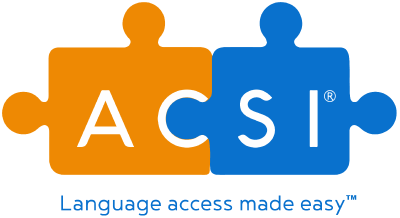Our Often Hidden & Indispensable Heroes
Aside from possessing the utmost level of professionalism and in-depth knowledge of medical terminology in a second language, medical interpreters belong to a niche where communication errors cannot exist. Misrepresenting a word, phrase, sentiment or more severely, a diagnosis can result in accidents and even deaths. This growing profession has become more necessary during the Coronavirus Pandemic because immigrant communities have been among the hardest hit. However, it is not so simple as pairing a Spanish interpreter with a Spanish speaking patient; we must consider how dialects affect a language. Finding an interpreter who understands and can discern the way one word spoken to a Guatemalan Spanish speaker can mean something different when spoken to a Mexican Spanish speaker, is critical. The chance of the interpreter misinterpreting must remain as low as possible. The level of trust must remain high based on the availability of professional training and making it mandatory—for some patients with limited to no English skills, their interpreter may be the last person who truly understands what they have said.
There is not enough awareness of how necessary medical interpretation is, and how much effort and knowledge are required beyond interpreting word for word as a “simple task.” Perhaps more so in our current medical settings, cultural context is vital in getting a life-or-death message understood by a limited or non-English speaking patient. The toll this type of work takes on the medical interpreter himself/herself is another issue that is mostly overlooked or forgotten completely. In an article that recently appeared in the New Yorker, Clifford Marks follows Lourdes Cerna, a fifty-eight-year-old medical interpreter, who comments at the close, “‘We are trained as a profession to hold our emotions off to the side,” she said. “But we are humans, too.’”
In the same article, Marks sites that after interviewing medical and nursing students, a group of Harvard researchers commented, “amid a deluge of COVID-19 cases, even clinicians who are deeply committed to language access may find the additional burden of getting interpreters prohibitive.” However, the facts remain: Section 1557 of the Affordable Care Act in U.S. healthcare law states that care providers must offer a medical interpreter to guarantee proper communication, and the Americans with Disabilities Act requires that care providers guarantee communication accommodations for Deaf patients. Marks goes on to note “Interpretation is what policy experts call an ‘unfunded mandate’: providers are required by law to offer language services but aren’t paid to provide them.” Patients who do not have access to an interpreter may spend more time misunderstood or misdiagnosed, further illustrating the importance of medical interpreters as part of a hospital team. This small but growing niche of people also comprises our front lines. They may still be somewhat hidden, but more and more, they will become recognized as wholly indispensable heroes.

